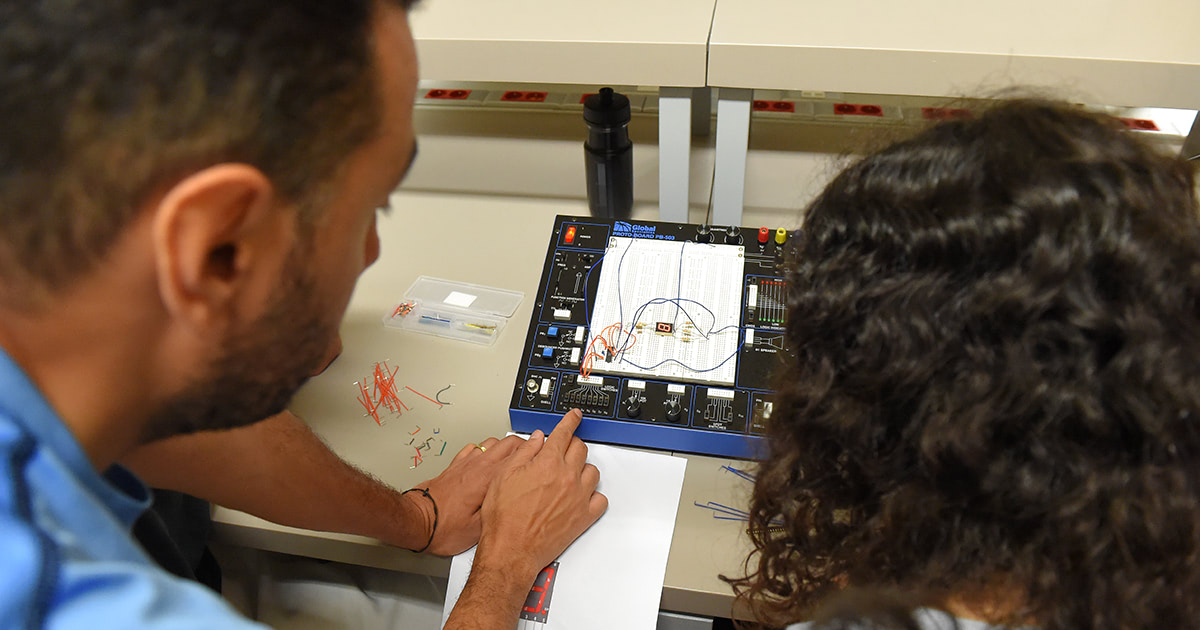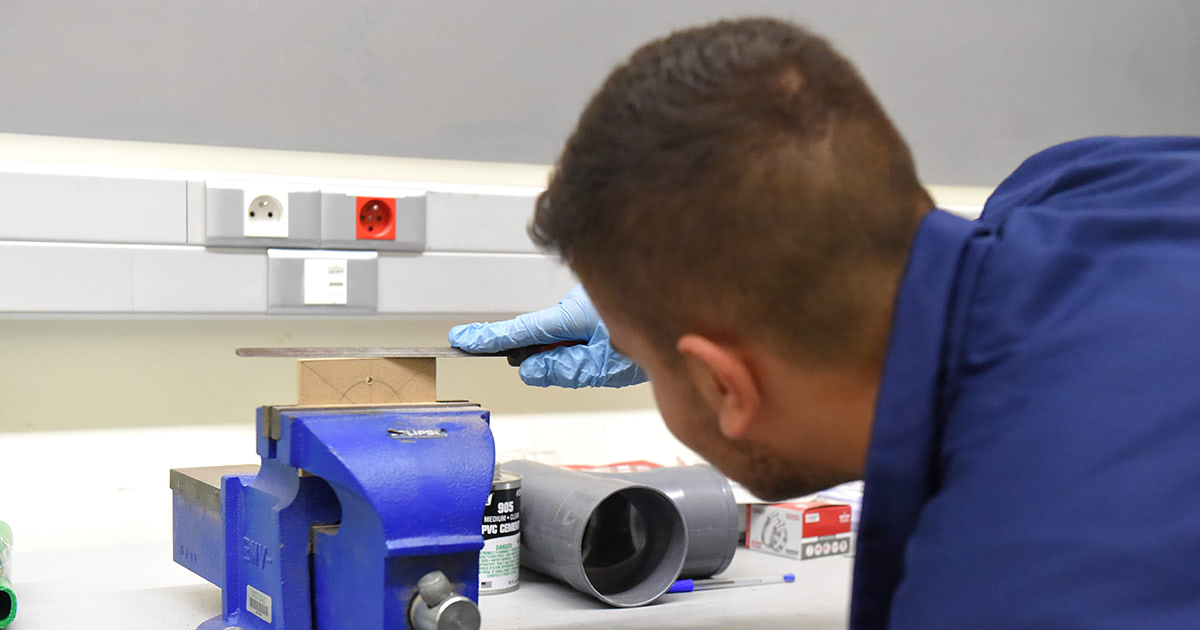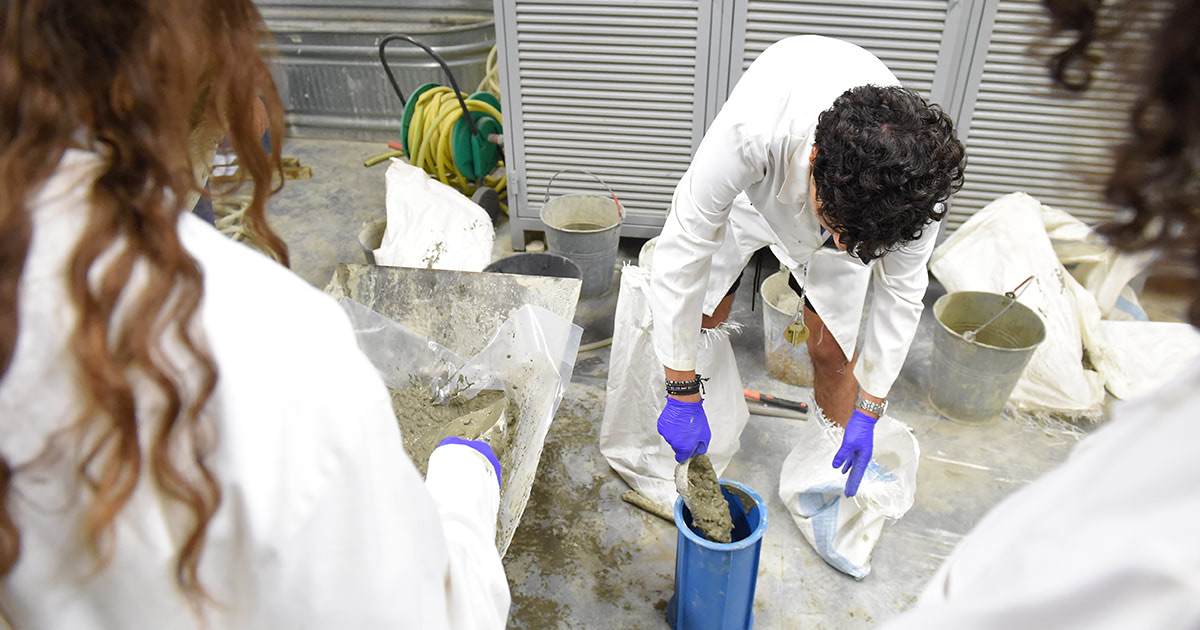“They Made Us Think Like Engineers”
High-school students from across Lebanon and beyond came together to discover engineering at LAU’s engineering summer camp.
Whether through mixing concrete, drilling simulations, robot design, setting up electronic panels, or 3D printing, students emerged from LAU’s engineering camps with a clearer understanding of what it truly means to be an engineer.
Running in five back-to-back cohorts from June 22 to July 25, the in-residence camp allowed students to learn about their desired majors hands-on in LAU’s engineering state-of-the-art labs and classrooms and to experience real life on campus.
Each day was designed to mimic one engineering discipline. In civil engineering, students poured and mixed concrete, tested water-to-cement ratios, and observed how the strength and consistency changed. They also observed the hydraulic jump and water flows in open channels, as well as water seepage in the soil. In mechanical engineering workshops, they were introduced to aerodynamics, learned how to design and manufacture a wing, and analyzed airfoil shapes and their impact on lift and drag. In electrical and computer labs, they soldered and connected circuit boards, assembled electronic equipment, and designed functional mini-robots.
The camp was structured as a friendly competition, with teams judged on the outcomes of their work and their ability to collaborate. “To get a good product, engineers need to work together,” noted Principal Lab Supervisor Nicole Wehbe. “It’s not enough that they work well on their own.”
“They made us think like engineers,” said two-time winner of the camp Nai Herro, an IB1 student at LWIS Adma International School. “We would all brainstorm together, think critically. Not by the book, not with Chat GPT or the internet. We had to think for ourselves. It was refreshing.”
This team dynamic wasn’t just about technical work, but also about community building. “I loved that we worked in teams for every workshop,” said Leticia Akkawi, a grade 10 student. “We bonded with everyone in the camp. I felt like part of a community.”
For many, the camp helped them decide between majors. “I already knew I wanted to do engineering, but I didn’t know which type,” said Jason Kibbe, a grade 11 student at SABIS – Adma. “This camp helped me eliminate what didn’t fit and made it clear to me that I’m a mechanical guy.”
For Associate Professor and Associate Dean Caesar Abi Shdid, the barbecue with the faculty was an indispensable part of the camp. “We found that, even after attending the labs and experiments, students were still confused,” he said. “They still had a lot of questions about which university to choose, whether they should work or pursue graduate studies after graduation, or if they should take up any internships.”
The barbecue was not the only occasion for the students to mingle with the faculty. On trips to Batroun and Jbeil, they got to know the people running the camps on a different level.
“LAU has always felt like home,” said Herro. “They even remembered me from last year. It made me feel like I wasn’t just another number to them—like I mattered.”
Wehbe, in a comment on the future of the camp, stated that “as the curriculum evolves, so will the camp” and that new activities are constantly introduced as the labs and equipment become more advanced.
On a touching note, and to tie off the last of the camps, Dean Michel Khoury urged students to “keep exploring, keep innovating, and keep pushing boundaries, whenever and wherever possible.”


